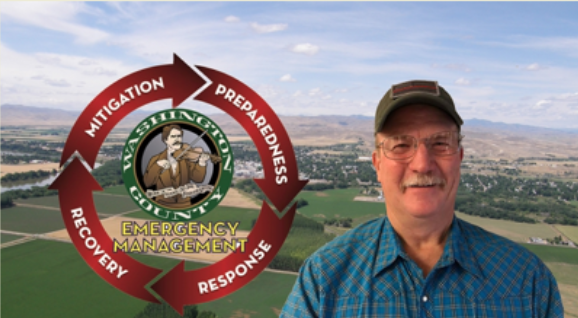The idea of preparedness is sometimes daunting. It doesn’t need to be that way. Anytime we forward think about what we’re doing is a form of preparedness or planning. At what level we take our preparedness is generally the big question. For the context at hand, what are we preparing for? Could it be hyperinflation, a natural disaster, job loss, pandemic, power loss for extended periods of time, terrorist activities both foreign or domestic, there are a multitude of different scenarios that could unfold ranging from a small inconvenience to a long term event with lasting effects.
September is National Preparedness Month so this is a very good time to talk about it.
The 1st week focuses on making a plan. What kind of plan would that be? For starters have a family communications plan. This would include a detailed listing in hardcopy form of all the important contact information that may be needed, ranging from contacting 911 in an emergency to a listing of insurance agents, doctors, extended family members, along with friends and others you deem necessary to make contact with during an emergency. Having this stored on a cell phone or computer is handy but also is very vulnerable to being lost when emergencies happen through damage or system failure. Make a plan following the Rules of 3’s for preparedness: 3 minutes without AIR, 3 hours without SHELTER, 3 days without WATER, and 3 weeks without FOOD. The current recommendation in the Northwest is to have a supply on hand that will support your family for 2 weeks of all the provisions you will need, this includes pets. Develop a plan to shelter using safe alternative methods to limit exposure or conserve heating and cooling needs if the weather so dictates. Locate water sources and have a plan to make them safe to use. Develop a plan to ensure there is ample nutrition for your family. The rules of 3 are a little misleading. Nutrition is very important to keeping healthy and being productive which is very important when facing circumstances out of the normal. It is important to understand that when facing abnormal events we want to remain productive and not just maintain an existence.
Week 2: This week is focused on building your kits. An at home kit is good to have on hand that would include emergency radios with alternative power sources that can keep you informed of events as they happen. Also this kit could include emergency medical supplies, extra batteries or solar chargers, lighting, hygiene supplies or any items that may be hard to find or are scattered around that may be needed quickly. When mobile it is just as important to have kits that will carry you through an incident long enough to resupply. These kits should be individual specific as everyone has their own needs, along with a general kit that will support the general group which can be a redundancy, but offers great peace of mind. Keep in mind that these mobile kits should effectively cover 72 hours or 3 days’ worth of supplies.
Week 3: Take time during this week to study good economical methods to complete your preparedness activities. Going out and purchasing the newest and greatest doesn’t necessarily mean being the best prepared. A good rule is when your plans are developed you can determine what your wish list should be. By developing this list you can prioritize what you need first and shop conservatively and utilize sales to lower your cost. Sometimes buying in bulk and then distributing in smaller portions can help meet your needs and save money doing so. Do research into alternatives and methods to stretch your buying power. Always remember having cash reserves is one of the preparations that are high on the priority list.
Week 4: Teach youth the importance of preparedness and help them to understand that emergencies require actions but don’t mean that panic should happen. Have them engage with preparation building to teach them that a solution through planning will help soften the impacts of emergencies. Explain to them what hazards are often encountered in your local area and when traveling. Playing games about preparedness along with drills that reinforce positive outcomes go a long way to helping youth understand the importance of preparedness. Don’t get caught up thinking that by not explaining that difficult situations do arise that you are protecting youth.
Here are some good references for building kits and developing a plan:
Ready.Gov
American Red Cross
Also you can always Google Family Preparedness
Contact your Local Emergency Management Department
Contact your State Office of Emergency Management
























